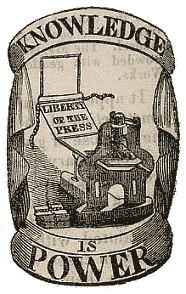


Government’s view of the economy could be summed up in a few short phrases: If it moves, tax it. If it keeps moving, regulate it. And if it stops moving, subsidize it.” —Ronald Reagan
During last nights Presidential "debate" Tom Brokaw asked both candidates how they would prioritize the three issues that most trouble the American public. He listed economy, social security and energy , and asked which would be the first to be acted on when one of the candidates was elected President?
McCain choose all three, and said no one issue is more important than the other two, and they all tie into a strong economy and our way of life.
Obama gave his usual "gobbly-gook" answer, that did not really offer any solutions to any of the three!
McCain missed an opportunity to reveal the true Obama,who speaks about lofty ideas but has a history of having no princiles, by not responding that Obama's real plan for Social Security will drive it further into default as the following facts will show.
Last week, Barack Obama revealed his plan to shore up Social Security's shaky finances by raising the income level on which the payroll tax is applied, says Donald L. Luskin, chief investment officer of Trend Macrolytics LLC.
Currently, incomes above $102,000 are exempt from paying the payroll tax, with that threshold rising every year indexed to wage inflation.
Obama would keep that limit in place, but then assess payroll taxes on incomes above $250,000.
Combined with Obama's other tax-hike initiatives, the total tax on labor would be close to 60 percent; in high-tax states like California and New York, the top rate would be even higher.This would take us back to top tax rates not seen since the 1970s. Obama's new tax would siphon off 0.4 percent of gross domestic product annually, says the nonpartisan Tax Policy Center.For all those tax increases, Obama's proposal won't help Social Security's long-run solvency problems, says Luskin.
According to the Social Security Administration actuaries, uncapping all wages subject to the payroll tax (not just those above $250,000) doesn't make much difference to the system's long-run solvency.
If the increased payroll tax payments earn increased benefits, then only about one third of the system's 75-year shortfall is addressed. Even if there is no corresponding benefit increase, only about half the shortfall is addressed.The more taxes Obama's plan collects, the worse Social Security's long-term situation gets, says Luskin. That's because all plans based on collecting taxes and saving them in the Social Security Trust Fund for future benefit payments rely on the U.S. government being able to redeem the Treasury bonds that trust fund holds; the money to redeem those bonds can only come from taxes.
So ironically, any tax dollars collected today will have to be collected all over again -- plus interest, says Luskin.
Source: Donald L. Luskin, "Obama's Social Security Fine Print," Wall Street Journal, June 25, 2008. SOURCE:NATIONAL CENTER FO POLICY ANALYSIS
Social Security returned an average of slightly less than three percent on retirees' contributions, adjusting for inflation.Had they invested their contributions in a balanced portfolio (60 percent stocks, 40 percent bonds), those retirees would have earned, on average, 5.5 percent - a huge difference when compounded over a lifetime.In fact, the annual retirement income provided by a 5.5 percent return is double that provided by the three percent return of Social Security; even more compelling, an investment in the stock market averages seven percent real return, which would mean an annual income of three times what Social Security provides.
National Center for Policy AnalysisSTATES THAT Social Security, rather being a safety net, actually produces old age poverty in many senior citizens.
"SS" is often touted as a crucial safety net that protects American retirees from abject poverty. In reality, Social Security has made it harder for retirees to grow wealthier by reducing their ability to save and thus has contributed to poverty in old age, argues Texas A&M economist and Independent Institute Research Fellow Edgar K. Browning
The yield from Social Security looks even worse when considering that savings fuel investment and economic growth.It is likely that we would have fewer poor among the elderly had they been free to invest their taxes in private assets. Once Social Security's rate of return drops to below two percent, it will only continue to aggravate poverty in the future.
Policymakers are left with the decision to cut benefits or double the tax rates. Neither option is attractive, but the longer we wait, the harder it is to implement change and the more likely we will be forced to accept substantially higher taxes, concludes Browning OF THE INDEPENDENT INSTITUTE
Senior Citizens and those "Boomers" about to enter the "SS" system, think on this before you fall for slick BHO in Novemeber!








No comments:
Post a Comment